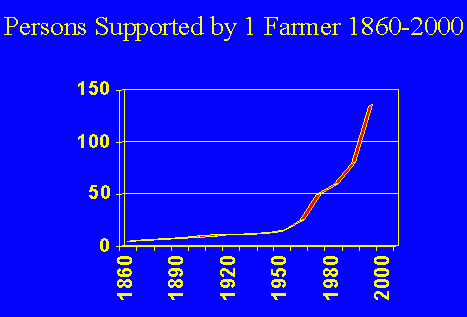In a replied to my posting which ended with the question why EC2’s pricing trends seem uncorrolated with rapid fall in the cost of goods Alex Muffet uses a metaphor: “most EC2 users are not paying for compute performance, but instead to have their time freed up from feeding and watering a farm of computers”. He followed up in his blog.
Delightful. I always like reframing a problem as a coordination problem; but better yet – that’s the herding cats metaphor applied to the data center. Data centers :: 4H project! Log analysis :: cleaning the stables. Autoscaling :: animal husbandry. Cloud computing :: factory farm. My basement :: the family farm. It’s so damn funny because it’s so true.
Where are the populist voices speaking out in defense of our family run farms of computers? Where are the sepia documentaries reporting on how these farmers are packing up their possitions and moving into the cities. 20-30 years of expertise in milking those damn digital cows has been displaced.
The larger analogy – farming :: Moore’s law – has legs. Each farmer in the US feeds say 200 people. Like Moore’s law that rate has been doubling. Not every 2 years but every 20. The displacing forces play out more slowly. Which means a man can learn to farm and spend decades doing it before his expertise is displaced. In the computer industry we regularly make the choice not to even bother to develop an expertise under the presumption it will be displaced so quickly. Back in the 19th century a large enough portion of the population was being displaced from farming by these forces that it was a major topic of the political conversation. Economic downturns regularly triggered another round of farm consolidation (aka failures).
I’d love to find a book about productivity growth rates across a wide range of economic sectors. Something with a mess of data, an attempt to tease out the structural reasons, a peak at how it happens in fits-and-spurts, and finally a modicum of sympathy for the resulting displacement. Such a thing would be, one would think, be required reading in schools of historical economics, business and politics. Pointer please?
